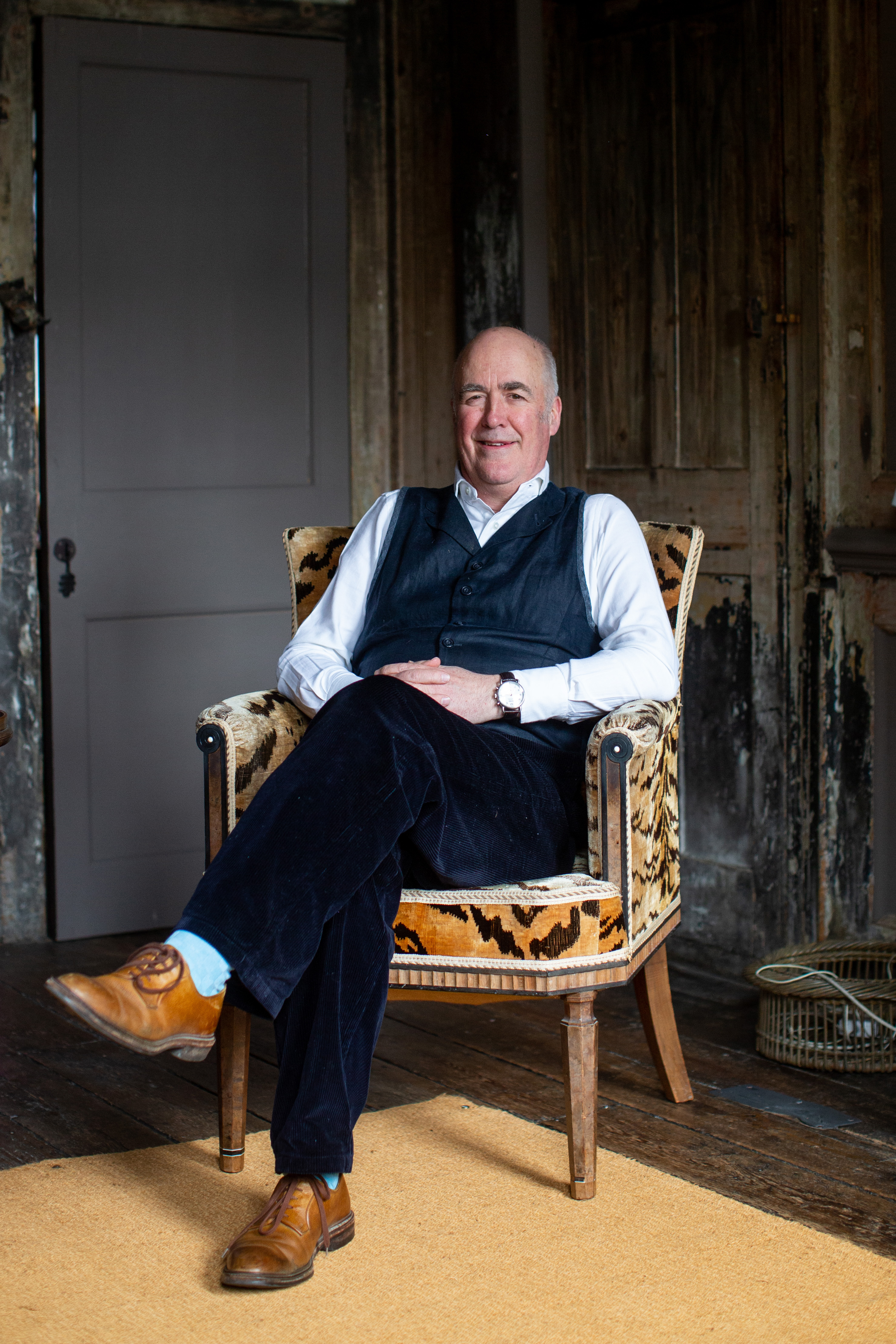Charles Saumarez Smith, former director of London's National Gallery and former director of the Royal Academy of Arts, poses at his home in London on March 25. Carmen Valiño
Museums in the UK will open their doors a month after shops and bar terraces. Fighting the pandemic has set clear priorities. Measures of social distancing, tight funding or uncertain international tourism force cultural institutions around the world to reinvent themselves or languish. Charles Saumarez Smith (Redlynch, UK, age 66) maintains the faith that these temples of culture will continue to be a human necessity. Director successively of the National Portrait Gallery, the National Gallery or the Royal Academy of Arts, three sacred totems, has dedicated his latest book,
The Art Museum in Modern Times
(The museum of art in modern times, not yet published in Spanish), to analyze in detail the history of more than 40 museums that emerged from World War II around the world.
An excuse, actually, to reflect on the relationship between contingent and content;
the jump from the classical concept that presented an orderly and didactic narrative of the exhibited collections to the primacy of the visitor's individual experience when contemplating the work.
QUESTION.
The pandemic broke out when he was writing his book, but the idea that museums were threatened was already in his head.
ANSWER.
And it indicated three clear lines of attack.
In the first place, the increasingly intense questioning of the origin of the money that finances them;
second, the growing debate on the restitution of works of art to their countries of origin.
And finally, a review of what the western canon has been, along with high-energy social movements such as the Black Lives Matter or a new look at the colonialist past.
Q. Financing is more of a UK or US issue, isn't it?
R.
It does not have the same incidence in Germany, France or Spain, where museums are under the responsibility of the national or local government. But in the Anglo-Saxon world, the one I know best, that culture of great fortunes, which in some way is a modern patrician culture, is under attack and is contaminating the attitude of many people towards these great institutions. Thanks to the internet, you can get a lot of information from anyone. You will always find something that one of their companies has been able to do with which you do not agree. Either because they have invested in fossil fuels or because they have some kind of connection with Russia. I observed that this moral judgment on where money came from had gone from being too liberal, accommodating, unquestioned, to the opposite extreme. Hereinafter,if you have managed to make money, you become a representative of evil capitalism.
Q. Are you not exaggerating?
R.
I would not want to give a too negative view on the changes we are experiencing.
Many of them I consider necessary, and I support them.
But people still want to see the Acropolis.
The way exhibitions are presented today has become much narrower and more conventional.
This year we dedicate it to Rafael, the next to Leonardo and the next to Monet.
It doesn't seem like the public's taste has changed much.
People keep traveling to Paris, London, Rome or Madrid.
Q. What you suggest is that the institutions make an effort to understand the reality that surrounds them.
R.
A year ago we observed this widespread feeling of anxiety and guilt, the result of the amount of anger that exists among the black community here or in the United States. And it responded to the idea that they felt invisible. When I was in charge of the Royal Academy of Arts I was aware that the representation on display needed, first, a certain gender rebalancing and, later, an ethnic rebalancing. It is something that will continue to change. It can be verified with the artists that are exhibited. They have recently recovered the work of a Jamaican photographer who portrayed the Afro-Caribbean community in London in the 1970s. Nobody paid any attention to him and he ended up setting up a restaurant. Now, under his bed they have discovered those fascinating photographs. In reality, the canon is never as fixed as we think it is,And the moment you make the decision to alter it, it changes quickly.
Q. Would you say the same about feminism?
R.
I am very interested in how the new National Portrait Gallery is going to be, which is undergoing a renovation process. It will open in 2023. When I was in charge, it was clear to us that its purpose was to celebrate Britain's commercial and industrial achievements. 90% of the portraits were men and only 10% women. During the nineties we already tried to correct this imbalance by adding more works by women, even using photography to increase their presence. We did what we could, but the inescapable reality is that Victorian England was predominantly male. You can make an effort to show a greater variety of gender or ethnicity, to highlight those who managed to stand out, but there is a natural limit to that effort. Everything will change. Feminism has already been naturally incorporated into the narrative.Little by little the way of representing art will be normalized, but you cannot reverse reality.
Q. Will we see the return of the works to their original owners?
A.
No one has disputed the return of the works seized by the Nazis.
A commission was set up to determine which pieces should be returned to their original owners, and the museums involved understood the historical force behind and collaborated.
It was the right thing.
We may be reaching a tipping point.
The case of the Bronzes of Benin has been very influential.
France, Germany or Scotland have already agreed to return the pieces to Nigeria.
The British Museum has started designing long-term loans with Nigeria.
I prefer this way of collaboration, but I sense that return is getting closer and closer.






/cloudfront-eu-central-1.images.arcpublishing.com/prisa/LP3J2SUS4JFCFPGRVUQ2GCCWLI.jpg)
/cloudfront-eu-central-1.images.arcpublishing.com/prisa/5ROLTZ5ZEZG27C5YZJRZSLWYNE.jpg)

